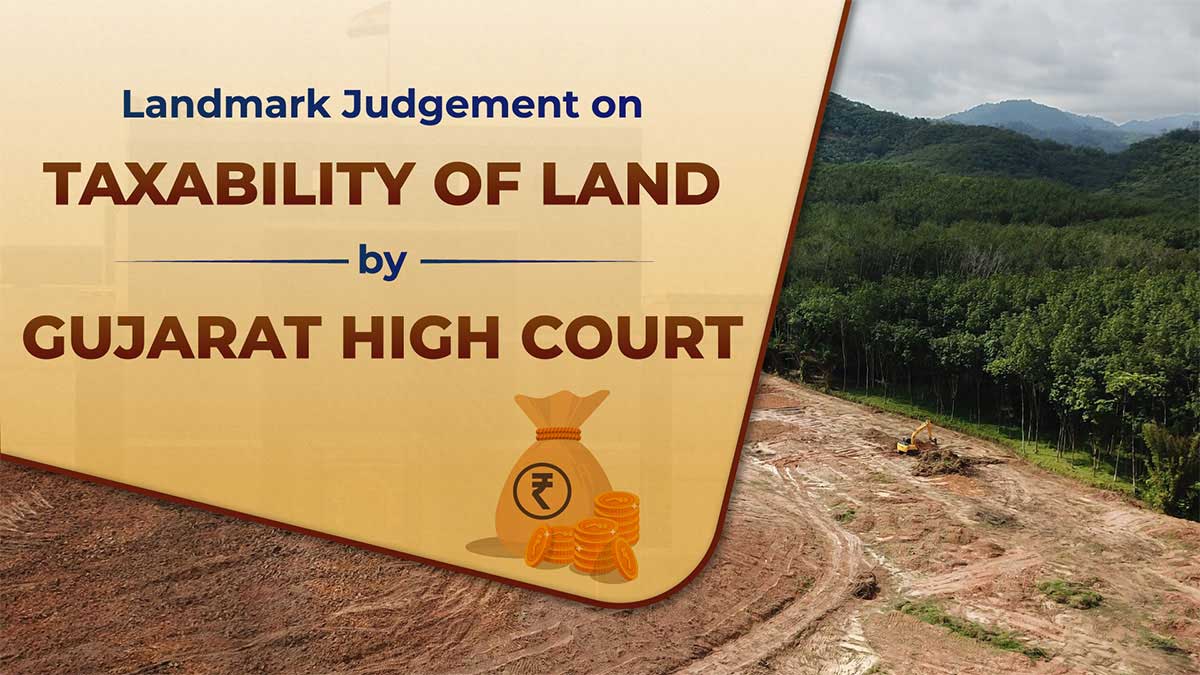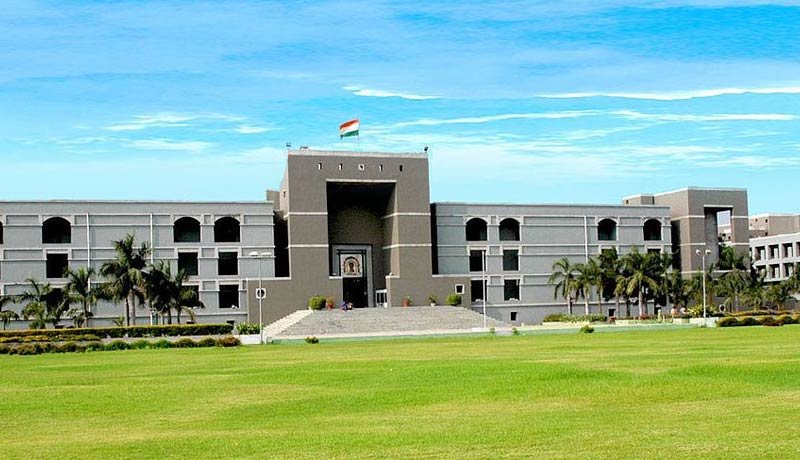
Judgement of Gujarat High Court on Taxability of Land: Analysis
The taxability of land, in its various forms other than land simpliciter under indirect tax laws, especially GST, has been a subject of extensive debate and discussion. A significant issue in this debate was the legality of the deemed deduction of 1/3rd towards the value of land in real estate transactions as prescribed in notification 11/2017-CT Rate. This critical issue was addressed in the landmark judgement by the Gujarat High Court in Munjaal Manishbhai Bhatt vs Union of India SCA 1350 of 2021. Below is an analysis of this judgement and its impact on the real estate sector across India.
Facts of the Petitioners
Facts of Munjaal Bhatt
Mr. Munjaal entered into an agreement with a developer for the purchase of a plot of land, which included the construction of a bungalow on that plot by the same developer. Separate considerations were agreed upon for the sale of land and the construction of the bungalow. The developer informed Mr. Munjaal that he would be liable to pay tax at the rate of 18% on the entire consideration, deducting 1/3rd of the value towards the land as per the impugned notification. An invoice was raised accordingly.
Facts of Other Petitioners
The other two petitioners were developers intending to sell developed parcels of land. Their applications sought an advance ruling on the tax liability under GST on the supply of developed land. The advance ruling authority held that the deduction for the sale of land was admissible only to the extent of 1/3rd of the total consideration. This ruling, affirmed by the appellate authority, was challenged by the petitioners.
Legal Text Under Challenge
The legal text under challenge was Paragraph 2 of Notification 11/2017-Central Tax Rate. This paragraph provides for a mechanism to arrive at the value of land for deduction from the whole consideration towards the sale of real estate units. It creates a deeming fiction that the value of land would be 1/3rd of the total consideration in transactions involving the transfer of land.
Question Framed by the High Court
The High Court framed the question for consideration as whether the impugned notification providing for 1/3rd deduction with respect to land or undivided share of land in construction contracts is ultra-vires the provisions of the GST Acts and/or violative of Article 14 of the Constitution of India.
Judicial Precedents and Legislative History
State of Madras v/s Gannon Dunkerley and Co. (Madras) Ltd. (1958)
The Supreme Court observed that in the case of building construction contracts, the property in goods passes to the buyer by the theory of accretion. Therefore, it was held that the State legislatures did not have the competence to impose sales tax on the goods element of a construction contract.
46th Constitutional Amendment
To overcome the above judgement, Article 366(29A) of the Constitution was introduced, deeming the transfer of property in goods involved in the execution of works contracts as sales. This amendment conferred the power to impose tax on the goods element in a construction/works contract.
Gannon Dunkerley and Co. v/s State of Rajasthan (1993)
The Supreme Court held that tax could only be imposed on the value of goods incorporated in the works contract, excluding labor expenses and profit thereon.
K. Raheja Development Corporation vs State of Karnataka (2005)
The Supreme Court held that even a tripartite agreement involving the construction of flats having land for a prospective buyer would constitute a sale in the course of the execution of works contracts.
Larsen and Toubro Ltd. v/s State of Karnataka (2014)
The Supreme Court affirmed the view in K. Raheja Development Corporation and clarified the taxability of construction activities undertaken at the behest of a prospective buyer.
Service Tax on Real Estate and the Case of Suresh Kumar Bansal v/s Union of India (2016)
The Delhi High Court held that no service tax could be demanded in the absence of a statutory valuation mechanism for transactions involving the transfer of land.
Judgement of Wipro Ltd
The Supreme Court held that a fixed percentage of valuation (such as 1% for loading, unloading, and handling charges in customs duty) is ultra-vires if the actual value is ascertainable.
Definition of Land
GST law does not define the term ‘land,’ but the court relied on the definition in the Land Acquisition Act, 1894, where land includes benefits arising out of land and things attached to the earth.
GST Council Deliberations
The 14th GST Council meeting discussed the provision for a 1/3rd deduction towards the value of land. Ministers from Maharashtra and Gujarat raised concerns about the proposed abatement for land value, predicting potential legal challenges.
Developed vs Undeveloped Land
The court noted that GST is levied on supply and consideration; thus, if an agreement is entered into after land development, GST cannot be imposed on the developed land.
Taxability of Under Development Plots of Land
The court mentioned that if a plot of land is sold during its development phase, it could be taxed.
Judgement of the Court
Ultra-vires Provision for Deemed Valuation
The court held that Paragraph 2 of the Notification, mandating a 1/3rd deduction for land value, is ultra-vires the GST law and violates Article 14 of the Constitution of India.
Option for Deemed Valuation
The court did not strike down Paragraph 2 but allowed the mandatory deduction at the option of a taxable person where the value of land is not ascertainable.
Refund of Excess Tax Paid
The court granted a refund of the excess tax paid along with interest.
Claimant of Refund
The recipient of the service (buyer) is eligible for the refund.
Status of AAAR Ruling
The court quashed the AAAR ruling in the case of Dipesh Anilkumar Naik, which stated that the sale of developed plots was taxable at 18%.
Department’s Authority to Challenge Land Value
The court maintained that the department could adjudicate the liability if there was an element of supply of goods or services.
Conclusion
This landmark judgement by the Gujarat High Court provides significant relief to the real estate sector, ensuring that the valuation must be based on actual transaction value. This judgement underscores the importance of constitutionally sound tax provisions and is expected to withstand scrutiny by the Supreme Court.
Formulated by:
N J Jain & Associates Chartered Accountants
CA Nitesh Jain (Managing Partner)
CA Gaurav Khetan (Partner)
CA Praveen Maheshwari (Partner)
CA Jay Dalwadi (Partner)


